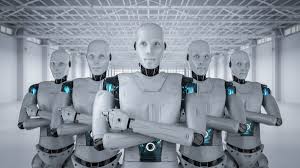The Evolution of Urban Planning: Merging Technology and Human Insight
Urban planning is a complex field that requires a deep understanding of social, economic, and environmental factors. The introduction of Artificial Intelligence (AI) into this realm has sparked a debate: can AI surpass human expertise in designing more efficient and livable cities? Let's explore the capabilities and contributions of both AI and human planners in shaping the future of urban environments.
AI: Harnessing Data for Comprehensive Planning
Optimized Space Utilization: AI excels in analyzing vast quantities of data to optimize land use without sacrificing essential green spaces. By processing geographical information system (GIS) data, AI models can suggest layouts that maximize space efficiency. For example, AI has been used to increase public park accessibility in urban areas by up to 20%, according to studies.
Traffic and Infrastructure Management: AI algorithms analyze traffic flow patterns to design road networks that minimize congestion. In cities like Barcelona and Singapore, AI-driven systems have reduced traffic congestion by as much as 30% through the implementation of smart traffic lights and dynamic public transit schedules.
Environmental Sustainability: AI contributes significantly to sustainable urban planning by predicting the environmental impact of various development scenarios. These systems can simulate years of data to forecast potential problems like pollution levels and heat islands, enabling cities to implement proactive measures.

Human Planners: Understanding Community and Culture
Emotional and Cultural Intelligence: Human planners bring an irreplaceable understanding of the emotional and cultural dimensions of city planning. They can gauge community needs and values that AI might overlook, such as preserving historical landmarks or designing inclusive public spaces that promote social interaction.
Ethical Considerations and Public Engagement: Humans are crucial in navigating the ethical implications of urban development, from ensuring equitable housing policies to engaging with the community in planning processes. Human insight is essential for maintaining fairness in decisions that affect diverse populations.
AI and Human Collaboration: The Path Forward
Leveraging Combined Strengths for Superior Planning: The most effective urban planning strategy involves a collaboration between AI’s analytical capabilities and human understanding. While AI can manage data and logistics, humans can provide context and compassion, ensuring that the technological applications align with public interest and urban well-being.
For more insights on the comparative strengths of AI or human in urban planning, visit AI or human.
Final Insights
Rather than debating who is better, it's more productive to consider how AI and humans can work together to plan cities that are efficient, sustainable, and most importantly, livable. AI offers tools that can enhance the precision and effectiveness of urban planning, while human planners ensure that the soul of the city is not lost to algorithms. This synergy will pave the way for future cities that not only function efficiently but also foster community and culture. Combining AI's technical prowess with human empathy and ethical considerations can create urban spaces that serve their residents well, balancing the scales between technology and humanity.